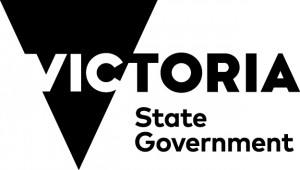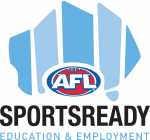Vicsport supporting sports to achieve board quotas
Vicsport has helped to smash expectations regarding the State Government of Victoria’s mandatory board quotas, initially outlined in their 2015 Inquiry into Women and Girls Sport and Active Recreation.
The Five Year Game Plan for Victoria set out nine recommendations to enhance participation by women and girls as well as increase their engagement in leadership and governance roles.
Recommendation 3 was to Mandate gender balance and good governance principles with a minimum quota of 40% set for female representation on peak sport governing bodies and a phase-in period of three years.
At the time, only 44% of Victorian peak sporting organisations had met that quota but following the initiative, driven by the Office for Women in Sport and Recreation and supported by Vicsport and VicHealth, that figure has increased to an incredible 93%.
“This is a watershed moment in our sporting history,” said Office for Women in Sport and Recreation Director, Dr. Bridie O’Donnell.
“Board quotas will ensure women are provided with necessary opportunities to take on leadership roles and contribute in a way which will enhance and strengthen the Victorian sport and recreation sector.”
The requirement came into effect on July 1 2019 and those bodies that have not met the target have agreed on a plan of action to do so.
After being engaged by Sport and Recreation Victoria to assist affected organisations, Vicsport’s Fiona Jones and Anthony Bowd have been integral to the process by working with over 30 State Sport Associations (SSAs) to reach the quota.
“Initially, there was a bit of a fear of the unknown amongst SSAs so our support work was centred on providing general information and advice,” said Jones.
“We set up a webpage that included information on what the board quotas meant, where it applied and the first steps that sports should be taking.
“We held workshops, information sessions and provided resource templates for approximately the first 18 months after the recommendations were made.”
The Good Governance Framework and Toolkit were also updated, providing further practical resources and evidence-based strategies to assist sports.
After a year and a half, Vicsport moved to a more hands-on approach to assist those sports that required additional support.
“The Office for Women in Sport led by Dr. O’Donnell developed a tracking mechanism which collated all the industry data and highlighted the sports that needed the most assistance,” said Bowd.
A specific area of focus were male-dominated sports such as target and combat sports that saw a participation rate close to 90% male.
“These associations were not reluctant to change, they simply felt they did not have female representation out there,” said Bowd.
“However, we were able to educate in ways to become more open and welcoming while finding practical avenues for boards to promote and communicate to their membership.”
Through research, Vicsport found that females are more likely to take up a position if their skills and abilities match what boards require whereas males are more likely to put their hand up unprompted.
“A board skills audit helps in that area,” said Bowd.
“We also assisted in planning for AGM’s, reviewing constitutions, adjusting board policies and then creating action plans for how sports can meet the quota.
“In the past, a simple email would be circulated asking for nominations to boards. It was a closed shop and was not inviting.
“Associations had to learn to broaden their horizons for who they want to engage with and once the process was open, more opportunities became available.”
The state of Victoria continues to lead the way within Australia and internationally by implementing the 40% women on boards quota and creating off-field leadership roles for women and girls in sport and recreation.
Now, the challenge moves to creating more diversity and inclusive opportunities for all Victorians.
“Following the initial recommendations in 2015, the drive for change was the threat of loss of funding,” said Bowd.
“Now, as we work towards overall board diversity, such as including people from multicultural backgrounds and people with disability etc., the drive for change comes from what is good practice for sport.
“Vicsport encourages all sports to follow good governance principles and to be reflective of the communities they represent.”























